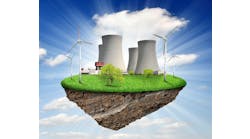Climate researchers examining energy data believe that China’s carbon emissions may have peaked a year and half after the Chinese government committed to reversing the growth of greenhouse gases and more than a decade earlier than anticipated, according to an article from The New York Times. Not so fast, argue others who say “peaked” is a stretch and instead suggest the country has reached a plateau or period of low growth at best.
While problems with the accuracy of China’s data make it challenging to know exactly what is happening, according to the article, some experts cite policies limiting coal use and the promotion of alternative energy sources as central to the reduction in emissions. Skeptics, however, foresee a rise in coal use again in the future as well as an increase in emissions from other sources due to urbanization. Nonetheless, officials and researchers say that a 50% decrease in carbon intensity below 2005 levels is doable, and that the government may revise its current target, which aims for a 40% to 45% reduction in emissions.
Read the entire article here.

